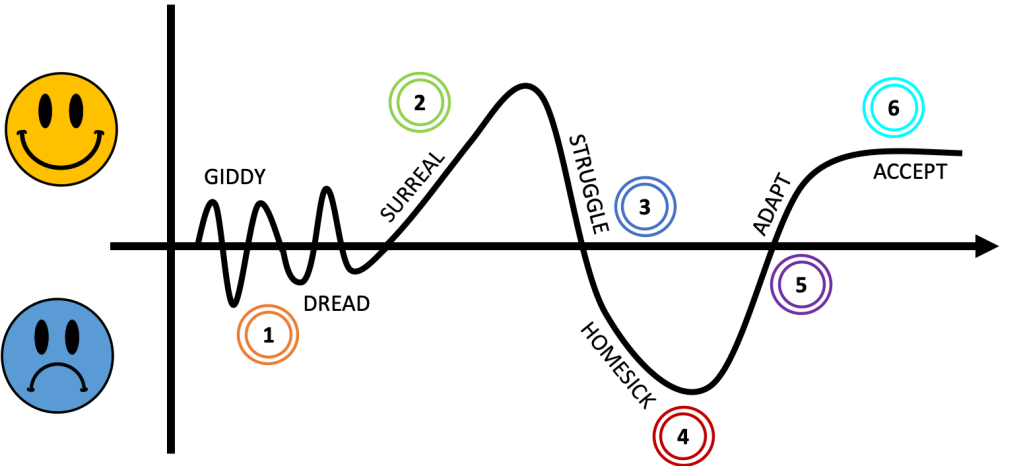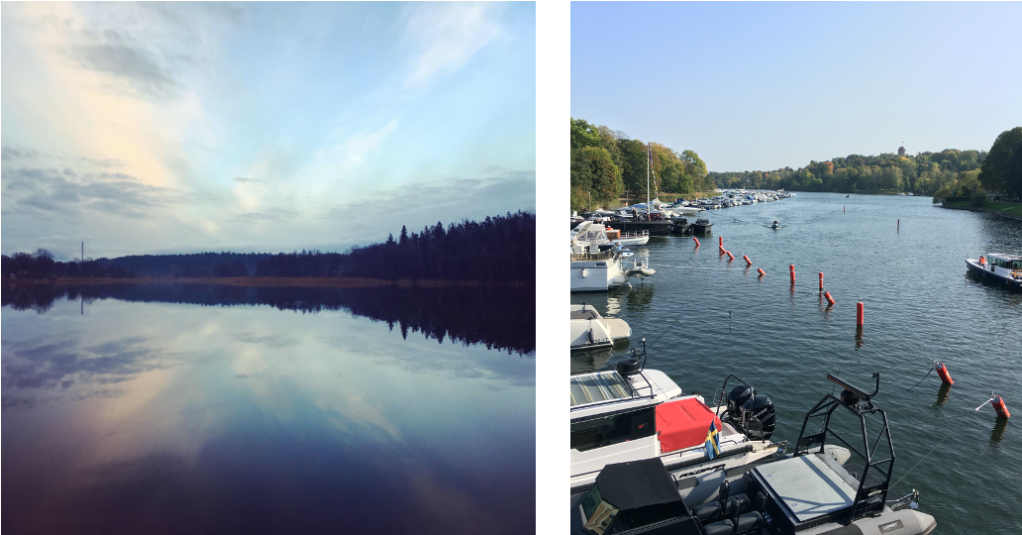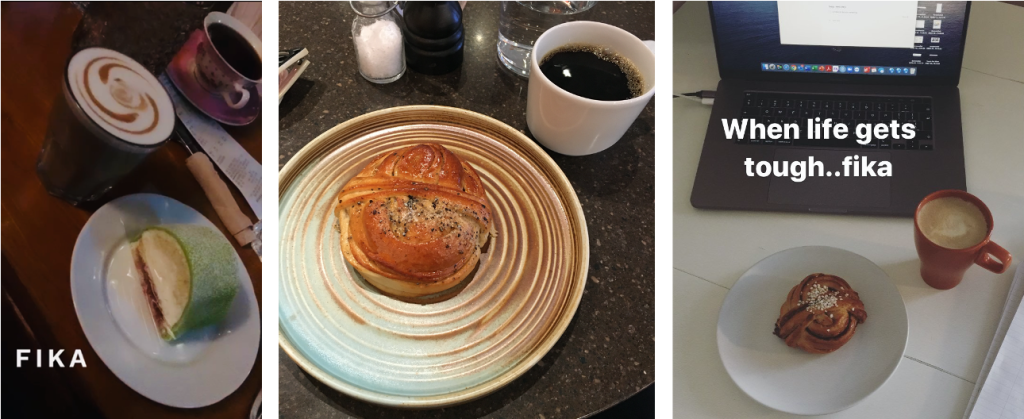Starting a postdoc in a new country in the midst of a pandemic
In my blog introduction I promised a recount of my experiences starting a new postdoc during the pandemic. For me at least it’s been a rollercoaster of emotions. Although a touch melodramatic, I felt that breaking it down into stages summarised the highs and lows fairly succinctly.

Stage 1: Giddy anticipation twinged with dread
As an avid traveller (pre-COVID), I was so excited about the prospect of moving to a new place and getting to fly once again, hurrah! But it’s hard to escape the inner turmoil: Am I making the right decision?! On the rational side, you could be working anywhere in the world and have the same (lack of) access to friends/family/your favourite pub – so what’s to lose? But what if it’s awful? What if I don’t make any friends? What if the airline loses my suitcase that contains everything I own? – This actually happened, and then it got hand delivered to my door a day later – as someone who despises carrying bags that’s kind of a win! More seriously, what if a close friend/family member became ill, would it be possible to get back home? The ‘what if’ catastrophising that accompanies a big life decision is undoubtedly heightened during a pandemic.
Stage 2: Surrealism and novelty
The first few weeks soothed me like a well-needed vacation. The contrast with the strict lockdown back home was striking. THE FREEDOM! The novelty of a new place: new sights (water and greenery everywhere!), new customs (thou shalt not bump into thy neighbours in the hallway), new food (big fan of the Kanelbullar), new incredibly efficient transport (so prompt), new language (9 vowels really?) – it’s all quite intriguing at first.
Stage 3: The struggle is real
After the novelty wears off, the things that once intrigued you can become a source of distress. Even in Sweden where so many people speak English there’s still the low-level exhaustion from constantly absorbing a new language. A previously simple task like navigating the supermarket can become a real headache (why are there so many dairy products in cartons; is this yogurt, milk or that thing in between? Filmjölk).
The isolation one might feel when moving countries is also heightened during a pandemic. The usual means of making friends are off limits – there will be no chit chat over coffee with colleagues, there will be no team sports, there will be no making new best friends in pub toilets, sigh.
Stage 4: Homesick
Getting homesick is somewhat unavoidable, and it doesn’t stick around as a phase per se but it can come and go, sometimes when you least expect it. One approach can be to lean into it. What are you missing about home? The food? The friends? The social events? For me, all three, so I made the foods I couldn’t get here, I reached out and spoke to friends I missed, and we arranged Zoom versions of social events such as the regular Friday night pub club.
NB Third mention of the ‘pub’ – what would us Brits be without our pub culture?
Stage 5: Feeling like a local
I was incredibly lucky to meet people I now regard as my close friends in those my first few weeks in Stockholm – back when the sun was shining and we could have outdoor socially distanced meet ups. Through my little group of pals I also met some Swedes and instantly felt more integrated into the country. I jumped in headfirst with the Swedish traditions. Swedish Christmas day (24th December in contrast to most other places) was complete with various pickled herrings and Kalle Anka (old school Walt Disney cartoons broadcast at 3pm and enjoyed by Swedes young and old). Learning the language always helps too and with free classes from SFI there’s no excuse not to. Without a doubt, embracing the cultural traditions, customs and foods is paramount to integrating.
Stage 6: Acceptance (will you stay or will you go?)
Anything can become a new normal after some time. It can go either way; you embrace the new life, or you seek an alternative. I’ve very much fallen in love with life here- sometimes I even feel the need to pinch myself when strolling around this beautiful city. Ultimately the transition will be different for everyone, and if it doesn’t work out there will always be another option. It’s also worth noting that support for both staff and students is available for anyone in need.
Humans are resilient and adaptable, academics perhaps more than average. When moving to a new country the best thing you can do is reach out as opportunities to meet new people seldom fall into your lap. Taking this on in the COVID era is no exception, it just requires a different approach. If you seek you will find. For postdocs, the KI postdoc association (KIPA) has been endeavouring to maintain social engagements in the postdoc community here at KI. Within research groups, I was happy to discover regular fikas were still occurring via the medium of Zoom. It will take more than a pandemic to defeat the mighty Swedish fika culture!
I think we’re all hopeful that better times are on the horizon, and I’m beyond keen to meet new friends and colleagues in the flesh. Without question starting a postdoc during a pandemic is a grand old challenge, but one that can be manoeuvred with a little community and camaraderie.
Stay tuned for tips & tricks for new starters in an upcoming blog post!



0 comments